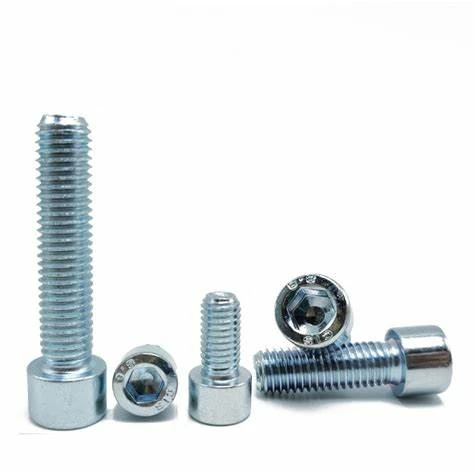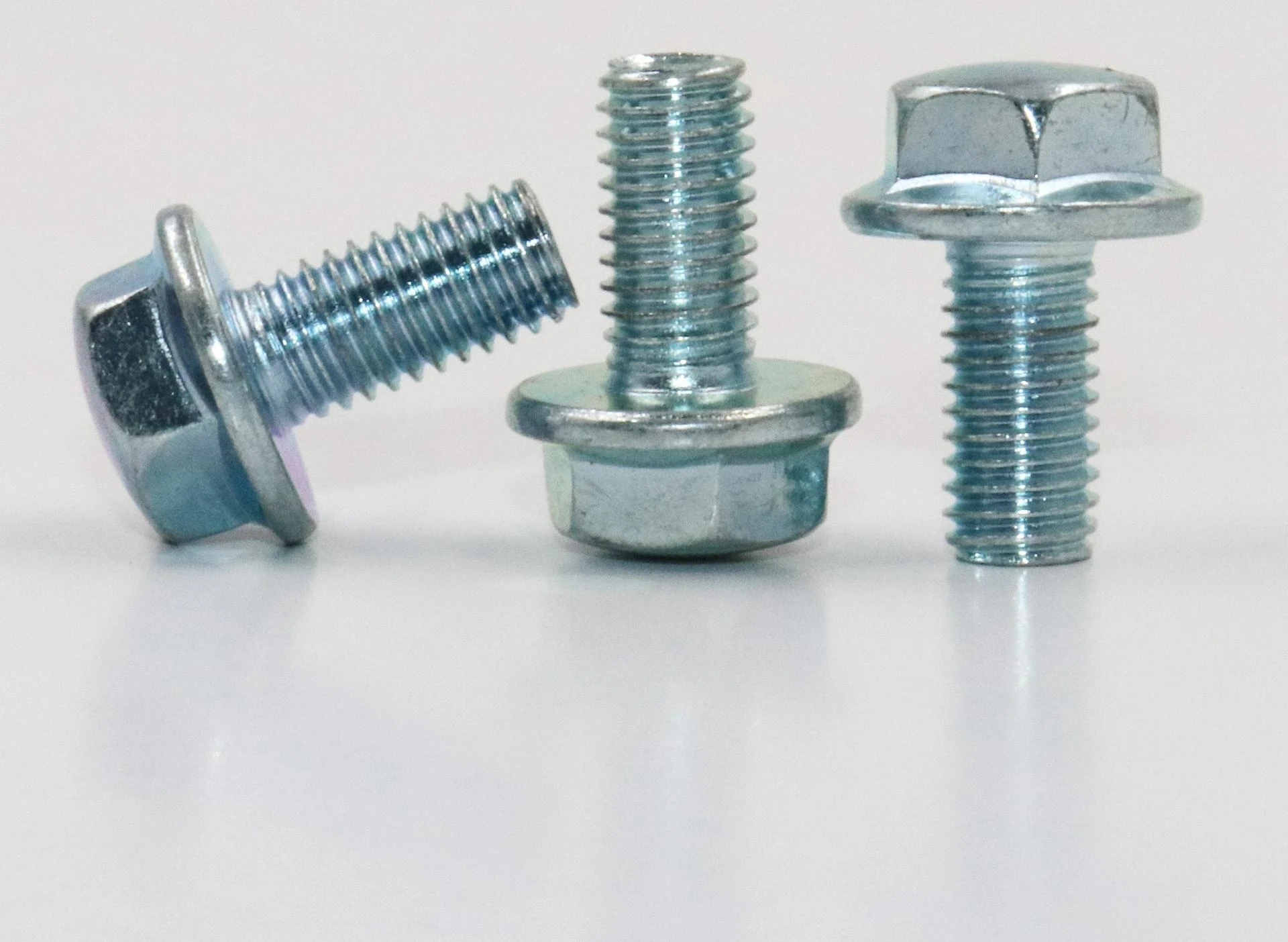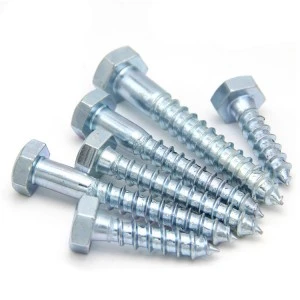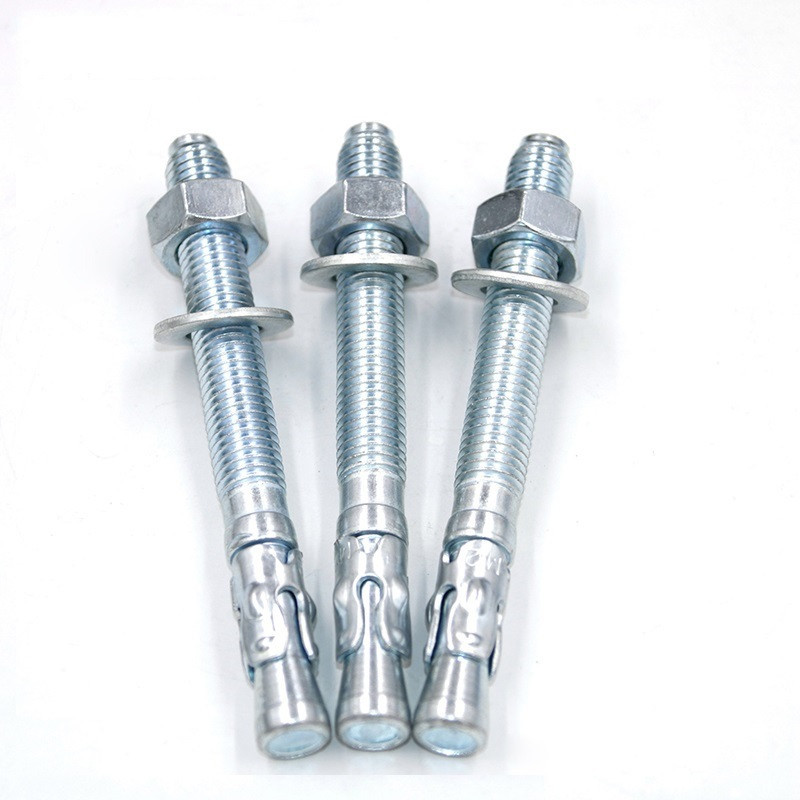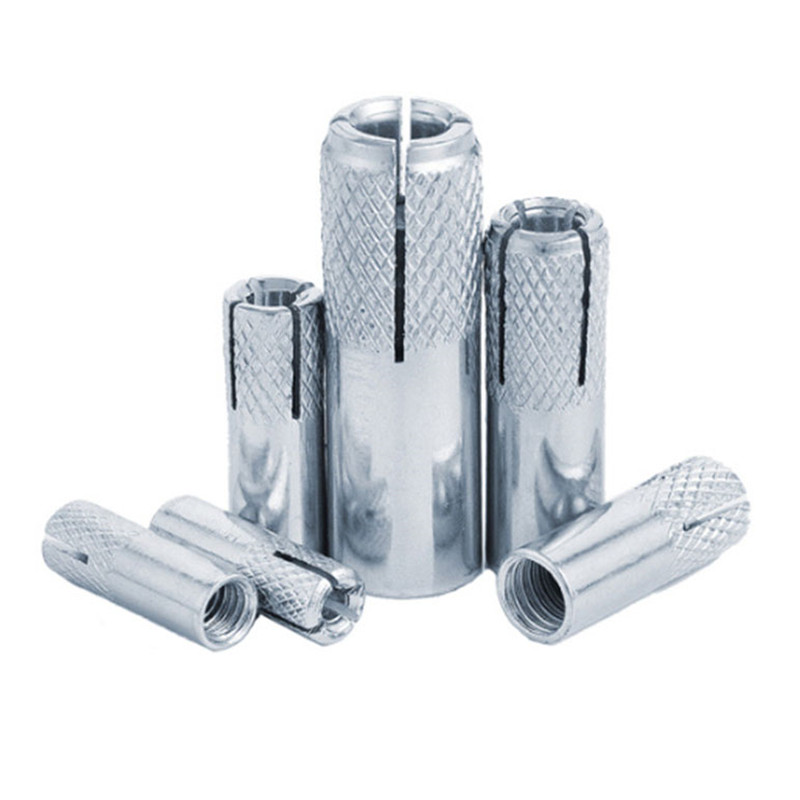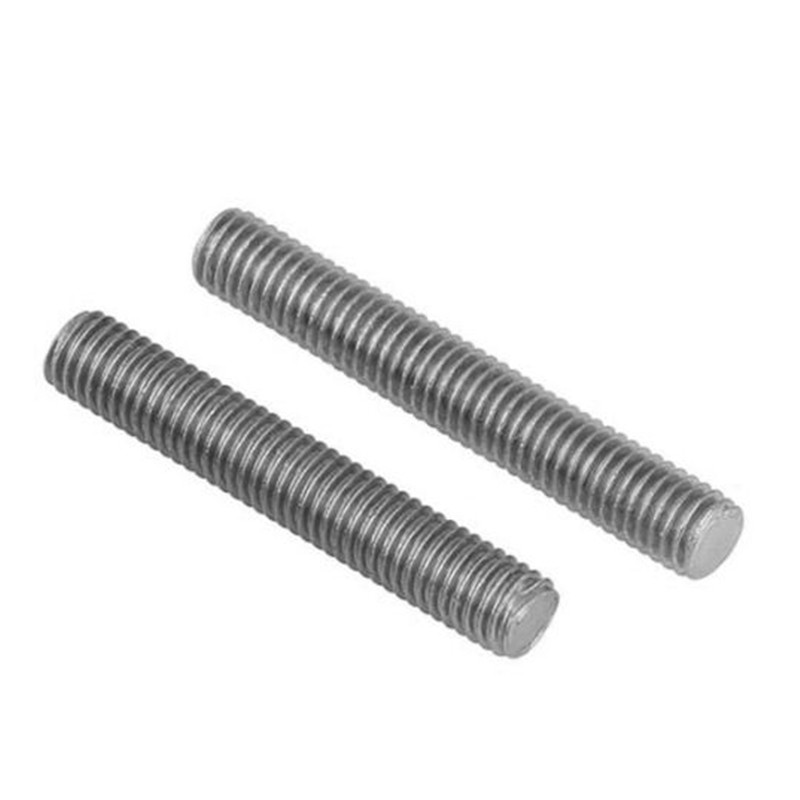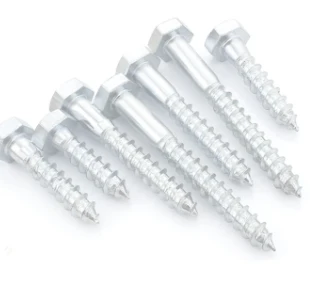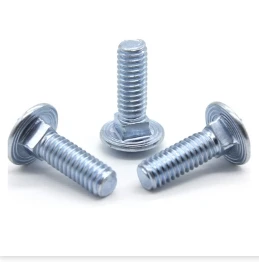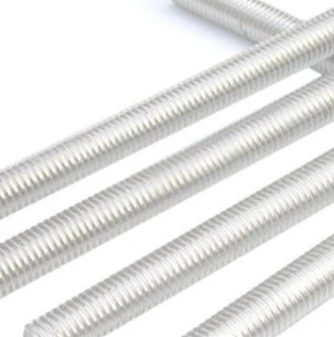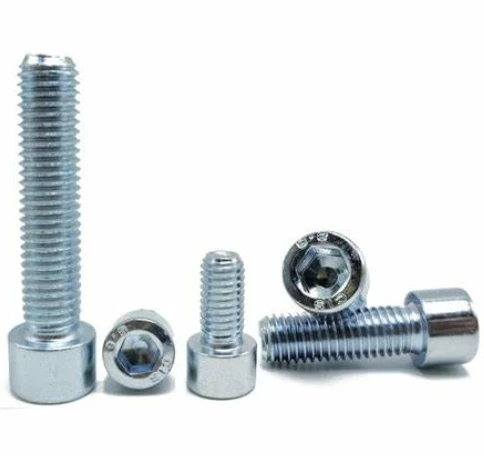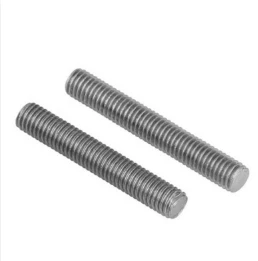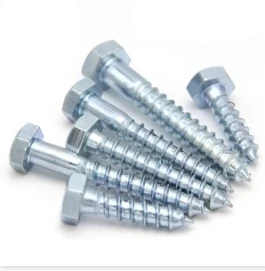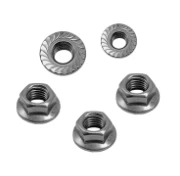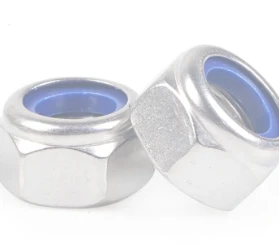Unlocking Durability: The Critical Role of DIN985 Lock Nut in Industrial Fastening
In the vast landscape of industrial engineering, the integrity of fastening solutions is paramount to operational safety and efficiency. Among the myriad of available options, the DIN985 lock nut stands out as a critical component, engineered to provide superior resistance against loosening caused by vibration, shock, and thermal cycling. This specialized nut, often referred to as a DIN 985 nut or DIN 985 nyloc nut, incorporates a non-metallic insert, typically nylon, which creates friction against the bolt threads, ensuring a secure and reliable connection even in the most demanding environments. Its widespread adoption across diverse sectors underscores its indispensable role in ensuring the long-term stability and performance of mechanical assemblies.
This comprehensive guide delves into the technical intricacies, manufacturing excellence, and versatile applications of the DIN985 lock nut, providing B2B decision-makers and technical personnel with insights into its operational advantages and the strategic value it brings to complex engineering projects. We aim to illuminate why selecting the right fastening solution, like the high-performance DIN985, is not just about assembly, but about guaranteeing asset integrity and minimizing costly downtime.
The Precision Behind the Fastener: Manufacturing Process of DIN985 Lock Nuts
The manufacturing of a high-quality DIN985 lock nut is a testament to precision engineering, involving several critical stages from raw material selection to final quality inspection. The journey begins with selecting premium-grade carbon steel or stainless steel, ensuring the foundational strength required for rigorous applications. Common material property classes include DIN985 8, which denotes a carbon steel nut with a proof load strength of 800 MPa, suitable for bolts of property class 8.8 and above.
The typical process involves:
- Cold Forming or Forging: Raw wire or bar stock is precisely cut and then cold-formed or hot-forged into the basic nut shape. This process enhances material density and strength.
- Threading: State-of-the-art CNC machining or thread rolling techniques are employed to create precise internal threads, ensuring optimal engagement with the bolt. Thread rolling, in particular, improves the grain structure, leading to higher fatigue resistance.
- Nylon Insert Integration: The distinctive feature of the DIN 985 nyloc nut is the nylon ring. This non-metallic insert is pressed into a precisely sized collar at one end of the nut. When tightened, the nylon deforms around the bolt threads, creating a strong frictional force that resists vibrational loosening.
- Heat Treatment (for higher grades): For property classes like DIN985 8, heat treatment processes such as quenching and tempering are applied to achieve the desired mechanical properties, including tensile strength and hardness.
- Surface Treatment: To enhance corrosion resistance and aesthetics, nuts undergo surface treatments like zinc plating (clear, yellow, or black), hot-dip galvanizing, or phosphating. Zinc plating with passivation is a common choice, offering excellent anti-corrosion properties suitable for various industrial environments.
- Quality Control: Throughout the production, rigorous quality checks are performed, including dimensional inspection (adhering to ISO and ANSI standards), thread gauging, proof load testing, torque-tension testing, and sometimes even accelerated corrosion tests to validate product lifespan and performance.
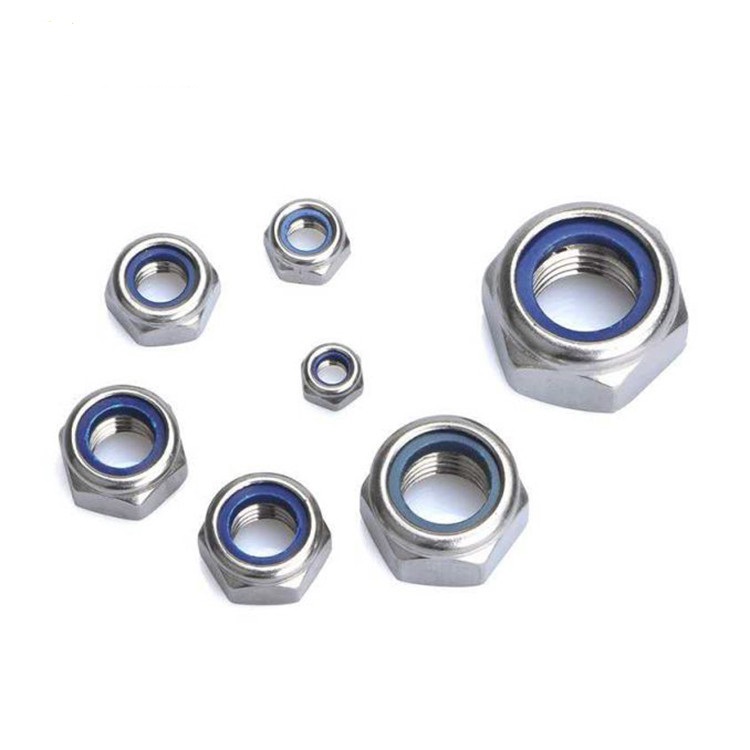
This meticulous manufacturing sequence ensures that each DIN985 lock nut consistently meets stringent international standards, providing reliable, long-lasting performance in critical applications.
Technical Parameters & Performance Benchmarks of DIN985 Lock Nuts
Understanding the technical specifications of a DIN985 lock nut is crucial for engineers and procurement specialists to ensure compatibility and optimal performance in their systems. These nuts are designed under the DIN 985 standard, which specifies dimensions, mechanical properties, and performance requirements for prevailing torque type hexagon nuts with a non-metallic insert. Below is a detailed table outlining typical parameters for these essential fasteners.
Typical DIN985 Lock Nut Specifications (Property Class 8)
| Parameter | Description / Value |
|---|---|
| Standard | DIN 985 / ISO 10511 (equivalent) |
| Nut Type | Hexagon Lock Nut with Non-Metallic Insert (Nyloc) |
| Material | Carbon Steel (e.g., C1008, C1010, C1045) or Stainless Steel (A2/304, A4/316) |
| Property Class | 8 (for carbon steel), 5, 10, or as per requirement; A2-70, A4-80 (for stainless steel) |
| Thread Size Range (M) | Typically M3 to M48 (larger sizes available upon request) |
| Finish | Zinc Plated (Clear, Yellow, Black), Hot-Dip Galvanized, Phosphate, Dacromet, Ruspert |
| Proof Load (Class 8) | 800 MPa (for corresponding bolt property class 8.8) |
| Prevailing Torque | Meets specific DIN/ISO minimum and maximum torque values over multiple installations. |
| Temperature Range | -40°C to +120°C (Nylon insert limits higher temperatures) |
| Reusability | Typically 5 reuses for prevailing torque; actual performance depends on application. |
| Applicable Standards | DIN EN ISO 898-2 (Mechanical Properties of Fasteners), DIN EN ISO 4759-1 (Tolerances for Fasteners) |
These parameters directly influence the performance and suitability of the DIN985 lock nut for various applications. For instance, the property class dictates the strength match with the bolt, while the finish ensures resilience against specific environmental conditions, like the corrosive atmospheres found in petrochemical plants or wastewater treatment facilities. The prevailing torque mechanism of the nylon insert is thoroughly tested to guarantee consistent locking performance across multiple installation cycles, offering superior vibration resistance compared to standard nuts.
Diverse Applications & Core Advantages in Industrial Scenarios
The robust design and anti-loosening properties of the DIN985 lock nut make it an indispensable fastening solution across a multitude of industries where joint integrity is non-negotiable. From high-vibration machinery to critical structural connections, the ability of a DIN 985 nyloc nut to maintain preload under dynamic loads provides significant operational advantages.
Key Application Sectors:
- Automotive and Transportation: Crucial for engine mounts, chassis components, and suspension systems where constant vibration is a challenge.
- Heavy Machinery and Construction: Used in excavators, cranes, agricultural equipment, and structural steel connections to prevent loosening under heavy loads and repetitive stress.
- Energy Sector: Applied in wind turbines, solar panel mounting structures, and power generation equipment where stability against wind loads and environmental factors is vital.
- Petrochemical and Chemical Processing: In pipelines, valves, and refinery equipment, where both vibration and potential corrosive environments demand resilient and secure fastening. Zinc-plated or hot-dip galvanized versions offer enhanced anti-corrosion properties.
- Metallurgy and Mining: In crushing equipment, conveyor systems, and vibrating screens, the DIN985 lock nut ensures components remain securely fastened despite intense operational vibrations.
- Marine and Offshore: Used for shipbuilding, offshore platforms, and dock equipment, where resistance to corrosion (especially with stainless steel or specialized coatings) and constant motion is essential.
- General Manufacturing: In production lines, robotic systems, and assembly equipment, preventing fastener loosening reduces maintenance cycles and improves overall operational uptime.
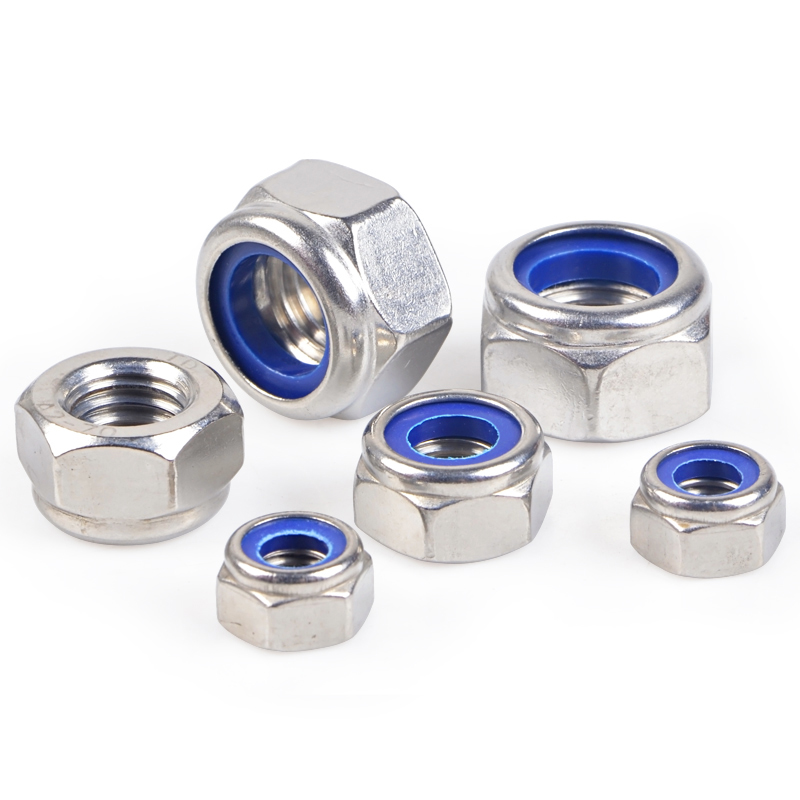
The primary technical advantages of employing a DIN985 lock nut include its exceptional vibration resistance, which minimizes the risk of catastrophic failure and ensures safety. Furthermore, its reusability for a specified number of cycles contributes to cost-effectiveness and simplified maintenance. The inherent design reduces the need for secondary locking devices, streamlining assembly and inspection processes. When paired with appropriate surface treatments, these nuts also offer significant anti-corrosion benefits, extending the lifespan of the entire assembly and ultimately leading to long-term energy savings by reducing the need for premature replacements and repairs.
Tailored Solutions: Advantages of Our DIN982 Nylon Insert Lock Nuts
As a leading supplier in industrial fasteners, we specialize in delivering high-performance solutions like the DIN982 Nylon Insert Lock Nut (which is often referenced interchangeably with DIN985 lock nut due to similar design and application, with DIN982 being an older, but still recognized, standard for similar prevailing torque nuts). Our commitment to quality and technical excellence ensures that our products meet the rigorous demands of B2B clients across the globe. Our DIN982 range, particularly our Carbon Steel Zinc Plated variant, offers distinct advantages:
- Superior Material Quality: We utilize high-grade carbon steel, precisely heat-treated to achieve property classes up to DIN985 8, ensuring exceptional tensile strength and durability.
- Advanced Manufacturing Precision: Employing cold-forming and advanced thread rolling techniques, our nuts boast superior thread integrity and dimensional accuracy, compliant with international standards like ISO and ANSI.
- Optimized Nylon Insert Design: Our nylon inserts are crafted from high-quality, resilient polymer, providing consistent and reliable prevailing torque even after multiple applications, extending the operational lifespan of the assembly.
- Robust Corrosion Protection: The zinc-plated finish on our carbon steel nuts offers excellent resistance to rust and corrosion in various industrial atmospheres, minimizing maintenance and replacement costs.
- Rigorous Testing Protocols: Every batch undergoes comprehensive testing, including proof load, torque-tension, and fatigue resistance, guaranteeing performance that often exceeds standard requirements. This rigorous quality assurance process is underpinned by our ISO 9001 certification.
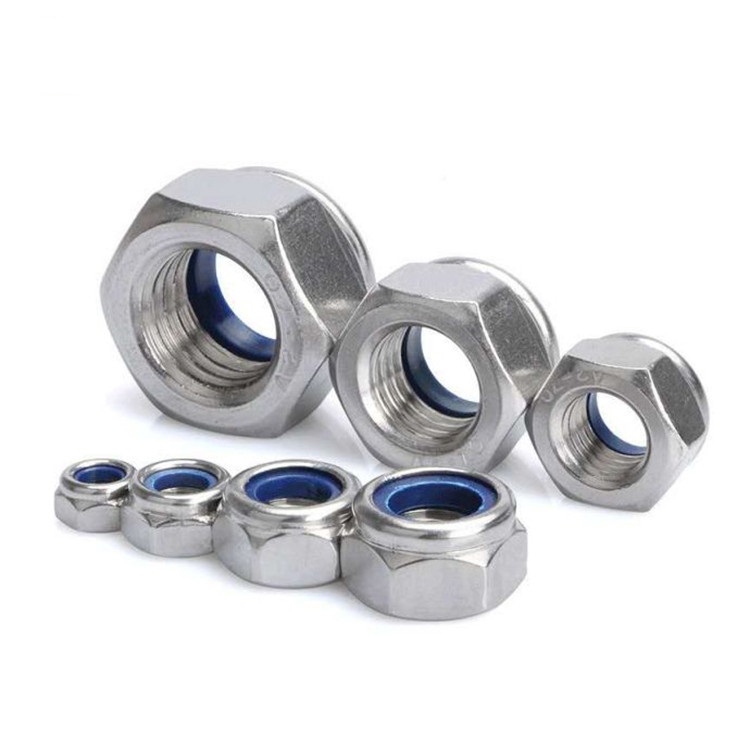
Customization & Partnership:
Beyond our standard range, we offer extensive customization capabilities to meet unique project specifications. This includes special dimensions, bespoke finishes, unique material grades, and specific testing requirements. Our engineering team works closely with clients to develop tailored fastening solutions, ensuring optimal fit and function for even the most niche applications. With over two decades of experience in the fastener industry and strong partnerships with global leaders, we provide not just products, but integrated solutions backed by extensive technical support and a deep understanding of industry challenges. Our commitment to service excellence is evident in our average order delivery cycle of 3-4 weeks for standard products, and clear communication for custom orders, ensuring your project timelines are met.
Choosing our DIN982 Nylon Insert Lock Nuts translates into enhanced safety, reduced operational costs, and superior long-term performance for your critical applications.
Ensuring Trust & Reliability: Certifications, Support & FAQs
Building long-term partnerships in the B2B sector hinges on trust, reliability, and demonstrable expertise. Our commitment to these principles is reflected in our adherence to global quality standards and our robust customer support framework. Our manufacturing facilities operate under stringent quality management systems, evidenced by our ISO 9001 certification, which assures consistent product quality and process efficiency. We regularly conduct third-party audits and certifications (e.g., CE marking for relevant products) to validate our compliance with international safety and performance benchmarks. Our reputation is built on delivering high-quality DIN985 lock nut solutions that engineers and project managers can depend on.
Our Commitment to You:
- Quality Assurance: All fasteners, including our DIN 985 nut range, undergo rigorous testing and are supplied with material certifications (MTCs) upon request, ensuring full traceability and compliance.
- Industry Recognition: With over 20 years of dedicated service in the fastener industry, we have cultivated a reputation for excellence, serving a diverse client base from small engineering firms to multinational corporations.
- Warranty & Support: We stand by the quality of our products with comprehensive warranty policies against manufacturing defects. Our dedicated technical support team is available to assist with product selection, application guidance, and troubleshooting, ensuring seamless integration into your projects.
- Efficient Delivery: We understand the importance of timely delivery. Our streamlined logistics ensure competitive lead times for both standard and custom DIN985 lock nut orders, minimizing disruptions to your supply chain.
Frequently Asked Questions (FAQ) about DIN985 Lock Nuts:
Q1: What is the primary difference between a standard hex nut and a DIN985 lock nut?
A1: The main difference lies in the integrated nylon insert within the DIN985 lock nut. This insert creates a positive friction fit against the bolt threads, providing superior resistance to vibration-induced loosening, unlike standard nuts which rely solely on thread engagement and applied torque.
Q2: How many times can a DIN 985 nyloc nut be reused?
A2: While the exact reusability can vary based on application stresses and environmental factors, DIN standards generally suggest that a DIN 985 nyloc nut can maintain its prevailing torque for up to 5 reuses. Beyond this, the nylon insert's effectiveness may diminish, and it's recommended to replace the nut.
Q3: What does "DIN985 8" signify?
A3: "DIN985 8" refers to the property class of the lock nut. The number '8' indicates that the nut is designed to be used with bolts of property class 8.8 (or higher) and has a proof load strength of 800 MPa. This ensures that the nut has sufficient strength to withstand the tensile forces exerted by a high-strength bolt without stripping its threads.
Q4: Are DIN985 lock nuts suitable for high-temperature applications?
A4: Due to the nylon insert, DIN985 lock nuts typically have a temperature limitation of around 120°C (250°F). At higher temperatures, the nylon can soften and lose its locking effectiveness. For applications exceeding this temperature, alternative high-temperature locking solutions like all-metal prevailing torque nuts or specialized locking washers should be considered.
Conclusion: The Indispensable Anchor of Industrial Stability
The DIN985 lock nut, with its ingenious nylon insert design, represents a cornerstone in modern industrial fastening. Its ability to reliably secure connections against the relentless forces of vibration and shock makes it an indispensable component across sectors ranging from automotive and heavy machinery to petrochemical and renewable energy. By understanding its precise manufacturing processes, adhering to stringent technical parameters, and appreciating its vast application potential, engineers and project managers can leverage the full benefits of this resilient fastener. Opting for high-quality DIN 985 nyloc nuts, such as our DIN982 Nylon Insert Lock Nuts, ensures not only compliance with international standards but also contributes significantly to the overall safety, longevity, and operational efficiency of critical mechanical systems. Investing in superior fastening solutions is a proactive step towards mitigating risks, reducing maintenance overheads, and safeguarding valuable assets in dynamic industrial environments.
References
- German Institute for Standardization (DIN) – Fasteners Standards Documentation.
- International Organization for Standardization (ISO) – Mechanical Properties of Fasteners.
- Society of Automotive Engineers (SAE) – Fastener Design and Application Guidelines.
- American Society for Testing and Materials (ASTM) – Standard Specifications for Fasteners.
Post time: Там . 12, 2025 05:40


